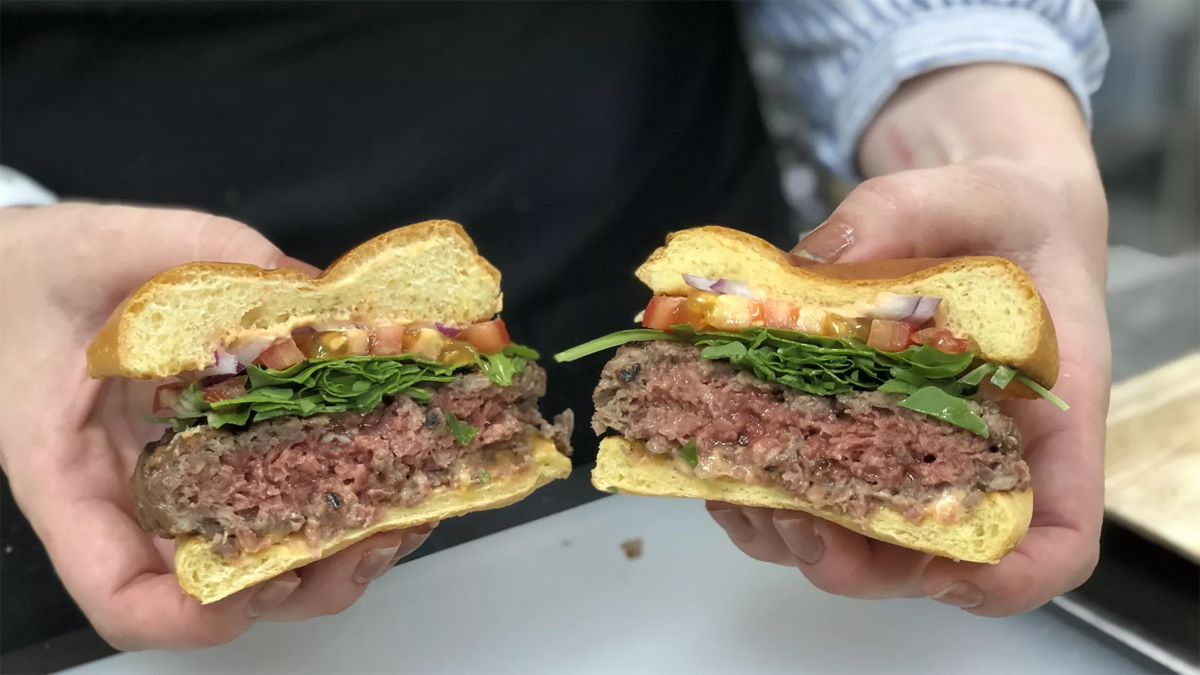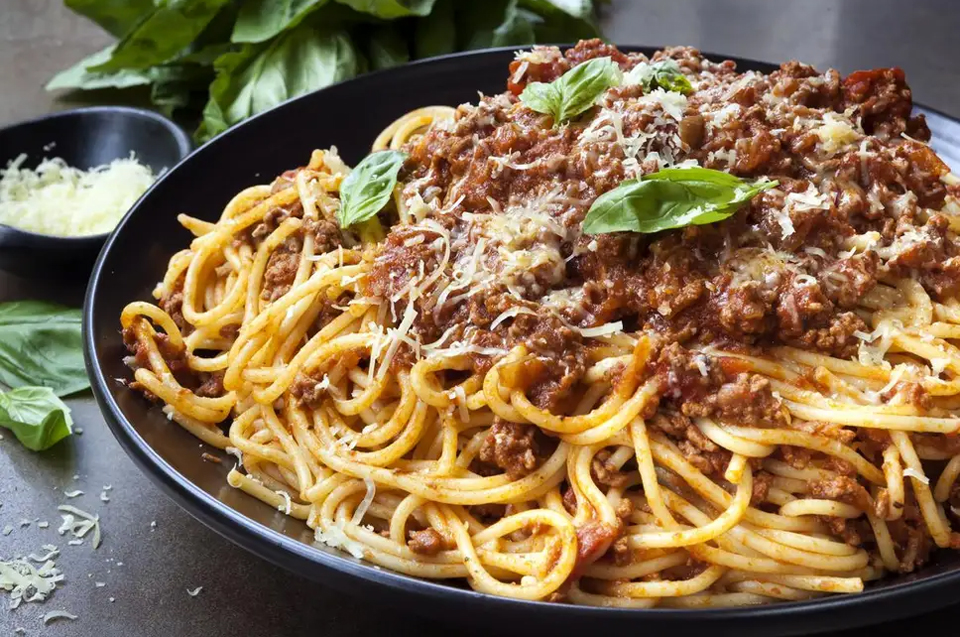Startups "alternative food". Companies that develop what we all eat

About why the development of "food of the new century" is not just necessary, but also inevitable, a year ago we wrote here . In short, chickens, cows and mumps require dofigishch resources (especially water) and large areas, as well as a negative impact on the climate of our planet. Cows produce more greenhouse gases than all cars. For every 1 kg of beef in the store, the equivalent of 35 kg of carbon dioxide is emitted into the atmosphere.
Meat is great, beautiful and tasty, but it gives only 18% of calories in an average diet, taking up to 83% of farmland (for grazing and feed) and giving 60% of all greenhouse gases from agriculture.
The main problem is that the increase in the number of people on the planet and the increase in the general level of material condition increase the needs of mankind in meat and other food. Many are simply not ready to give up delicacies, even if it is harmful to the planet or to itself. According to UN estimates, by 2050 the world will have to produce 70% more food. And with our current consumption habits (and current technologies), the planet simply will not feed us.
Banning food is not an option. Therefore, Asian governments, venture capital funds and various IT billionaires, including Bill Gates, are trying to find a way to produce food. Their hopes now are several dozen startups developing new, more “green” food production technologies. Our future may depend on the success of these young companies. And, quite likely, the food at least a couple of them, we still have to eat in twenty to thirty years.
First unicorn
The other day, one of the most promising companies in this field, Beyond Meat , which sells “meat that is not meat”, announced its IPO. She plans to raise about $ 184 million, selling 8.75 million shares at a price of $ 21. This will put the company's total value at $ 1.2 billion!

')
The main product of the company, which provided her with such a good price - Beyond Burger. These are burgers (in our opinion, burgers), 100% made from plants. With 20 grams of protein, but without soy, without gluten, without cholesterol, without GMOs, and with only 40% saturated fat compared to a regular beef burger. True, there are some drawbacks too: apparently, in order to achieve an optimal taste, the “superburger” contains five times more salt than in the usual uncooked beef cutlet, as well as a lot of glutamate sodium. And some nutritionists warn that valuable nutrients may be wasted in digesting its vegetarian ingredients.
Beyond Meat products are made from peas and rice protein. A startup uses a patented system that heats, cools and puts pressure on them to form the same fibrous structures from these vegetable proteins that can be found in animal muscles.
The company is also experimenting with proteins from other sources, such as sunflower seeds, mustard and lupine, to lower the price of its development. Now her burger costs $ 5.99 for two pieces. This is 71% more expensive than even the most organic, high-quality and grass-fed beef, if we compare their cost per kilogram.

100% vegan
Beyond Meat was founded by Ethan Brown in 2009. Since then, she has received investments from several venture capitalists, Twitter founder Biza Stone, the American Society for the Protection of Animals and Bill Gates, for a total of $ 122 million.
In 2013, testing one of their first samples of such "meat", Bill Gates wrote in his personal blog that
I couldn’t distinguish Beyond Meat products from real chicken.
A well-known television food critic and cook, Elton Brown, commented in the same year:
I tried Beyond Chicken from Beyond Meat. It looks more like meat than anything I saw that was not meat. If there is no spice in the product, you can understand that it is vegetarian, there is something in it that looks like tofu, it is slightly spongy. But the gap is fleshy, and if it is seasoned, adding pepper and salt is difficult to distinguish from meat. If you give it to people who do not know what Beyond Meat is, they will probably think that it is normal meat, simply from an animal that they have never tried before.
Much time has passed since then, and now such burgers are already being offered in supermarkets in all major US cities. In January, the company entered into a partnership with Carl's Jr., one of America’s largest fast food restaurant chains. Also on sale now there are "green" sausages and "slices of beef."

The company's annual revenues are steadily growing - from $ 16.2 million in 2016 to $ 88 million in 2018. But Beyond Meat is still a real loss machine. Every year she loses $ 30- $ 35 million, trying to develop new products, so she regularly needs infusions from investors.
With the release of the IPO, Beyond Meat will become the first “deputy meat” company in the world to offer its shares to a wide range of investors. Immediately after her are going to follow several smaller similar startups. Much depends on how well the public perceives this pioneer. But of the experts, few doubt that Beyond Meat will collect its $ 184 million. At least due to the huge potential. The company has a chance to grab a big chunk of the $ 270 billion that US buyers spend every year on meat. And considering all the markets, according to Fitch Solutions, here we are talking about $ 1.4 trillion annually.
Of the other good news (not for nothing, the company decided to go for an IPO) - the consumption of vegetable-based meat substitutes in the United States has been steadily growing for the third year. In the first half of 2018 alone, Americans bought $ 670 million of such products. This is an increase of 24% over last year. At the same time, the meat “from animals” (funny that now you have to make such a remark, isn’t it?) Grew by only 2%. And milk in consumption even fell.
A survey conducted by Nielsen in 2018 showed that 39% of Americans are actively trying to switch to a “plant-based” diet (only 6% of people named themselves vegetarians in the same poll). At the same time, standard vegan tofu, brown rice and granola are slowly falling in sales, but “innovative” alternatives to meat, cheese, milk and yoghurts are breaking up. According to Ethan Brown, the creator of Beyond Meat, 93% of people who buy products from his company in stores usually eat meat. Often, even buying it in the same basket as their “vegetable meat” - to compare what they like more.

Vegetable sausages
A couple of weeks ago banned reception against fans of natural chicken and pork held the city of New York. His council said that henceforth more than 1.1 million schoolchildren and students would not eat meat on Mondays (the project is called “Meatless Mondays”). Like, "it is useful for students, the public and the environment." The project was first tested on 15 schools in Brooklyn in 2018, now it is being launched throughout the city. The news caused a flurry of emotions, from hot approval to accusations of doomed schoolchildren for the short receipt of substances important for the brain.
Be that as it may, the gradual movement into the "plant world" is obvious, and this is very good for Beyond Meat. A little more than a year ago, the company was estimated at $ 500 million, but the growth in the number of people trying to find a substitute for meat has now increased its value to $ 1.2 billion. This makes it the first “unicorn” (a startup with an estimate above $ 1 billion) from the industry. And the same Bill Gates now has the opportunity to go with a huge profit. All that was needed was to see in which direction the industry would inevitably move.
Next generation food
New investments give an additional impetus to the food industry segment, which has grown at an impressive pace. From 2013 to 2018, more than $ 880 million in venture capital went to the startup sector, which deals with “alternative food” (the official term Crunchbase). The real investment can be one and a half to two times more: strategic investors often do not disclose the sums spent on the rounds.
Many of these investors are themselves major meat producers or fast food chains, including from various Asian countries. This is their way to be safe. A la Qatari fund, investing billions in airlines so that when the price of oil falls, its capital does not go down.
Meat without animals
The most promising area, the development in which are tens (if not hundreds) of companies. For this year, at least three major startups - Memphis Meats, Wild Type and SuperMeat - have received injections to create their alternatives to meat (in the amount of about $ 70 million). This shows that investors are already, in principle, accustomed to this new concept, and now the main thing is to see who can offer the most delicious and affordable product.

Chikken nuggets
The developers of the "silent" versions of traditional meat products also attract good capital. Seattle Food Tech, which is working on mass production of such chicken nuggets, recently received $ 2.1 million, and Good Catch, trying to hook up buyers for fishless fish, caught $ 8.7 million (by the way, its products do not look very appetizing, the photo here did not lay out).
One of the most successful companies in the field of "alternative meat" is another producer of vegetable legume burgers - Impossible Foods. For 8 years since its foundation, the company has raised $ 389 million from the government of Singapore, the fund of the government of China, Google and Bill Gates. Since 2016, its Impossible Burger is sold in supermarkets and small restaurants, and on April 1 (no, not a joke), the company entered into a partnership with Burger King fast food chain - and now their joint Impossible Whopper, the first burger, is advertised on all TV channels in the US from plants, which, by taste and appearance, are (almost) indistinguishable from the ordinary.

Meat or not?
The secret of Impossible Foods is in leggeooglobin protein, which it extracts from legumes. It is akin to hemoglobin, which gives red color to the blood and muscles of the animal. Why, then, beans, peas and soybeans are not red? Because leggemoglobin is extracted from their roots. If you cut the root nodules of plants that grow in collaboration with nitrogen-fixing bacteria, you can see that inside they are red, and even remotely similar to animal meat. However, neither Impossible Foods, nor Beyond Meat draws attention to the fact that they receive their products from plant roots covered with special bacteria. Apparently, not to make their dishes even less appetizing for the average buyer.


In Israel, the startup is run by Rilbite, which plans to sell vegetable meat “at the best prices” in order to compete directly with ordinary beef and pork. There are 146 calories in their burgers, and only 76 liters of water are required to produce one. Seems a lot? In fact, it is 9 times less than for Impossible Foods bean patties, and 37 times less than for a regular cow burger.
Well, the king of the industry, which pinned the highest hopes, remains JUST from San Francisco. She has already made mayonnaise, popular with vegetarians, eggs and biscuits without animal products, and is now engaged in the cultivation of real animal meat in a test tube . It has already appeared in some elite restaurants, and should massively go to supermarkets in 2019. The company says that in a few years its price will be lower than that of standard meat extracted from killed animals. So far, for one burger from JUST Meat, you need to pay about $ 9.

The company sells almost nothing, does not profit, and works at a great loss by investing in its bioreactor laboratories. But she has already been given about $ 260 million. Basically, the money comes from Hong Kong, China and several IT billionaires, including the co-founder of Yahoo! Jerry Yang.
New Ingredients
Making whole meat is a very, very difficult task. Here you need the right consistency, the right density, the right look, smell, taste. Many companies do not think so large. They are trying to create healthy and natural ingredients that can then be sold by the same JUST, Beyond Meat and Impossible Foods. They say, there is enough sugar and fats, in the XXI century it is time to come up with something better.
For example, Sustainable Bioproducts , which recently received $ 33 million in the first round of investment, including from Amazon founder Jeff Bezos, found a way to extract protein from extremophilic microbes living in Yellowstone volcanic springs. At first, they did not even plan to invent a replacement for the animal protein, but their study of organisms in the wilds of the national park led to a patent for such a technology.

Appetizing!
And for lovers of real milk, who do not want to disturb cows, another startup, Perfect Day , works. They create a special microflora, develop it and feed it - in fact, they carry out the same process that takes place inside the cow, only without involving an animal. At the exit - (almost) ordinary milk, from which you can then make cheeses, ice cream and other products. In February, the company received $ 35 million for its research. So far, their “milk” is unrealistically expensive, but the JUST Meat burger was sold for $ 325,000 just 5 years ago. And over the past short time, it has managed to reduce its price by 40,000 times.
Fermentation
For most of us, fermentation (or fermentation) is a long process from which sauerkraut is made. Or, say, beer. But in a broader sense, it is the metabolic activity of microorganisms and enzymes that break down organic compounds, often in the absence of oxygen. For those who are looking for a way to create the food of the future, this is a real field for experimentation. Think up a substance, add the necessary microorganisms there, let him wander - and see what happens. Most vegetarians have no bias towards microbes yet, and you don’t have to worry about the climate effect while you are working on the scale of a petri dish. Create - I do not want.
Dozens of small startups bumped into something potentially edible, and now they are trying to blow with might and main, promising that this will be the next step in the food, if you give it a chance. Of the more or less large, it is worth noting Geltor, several projects of Ginkgo Bioworks, as well as MycoTechnology, working with mushrooms. Last in January attracted $ 83 million, and all this - due to the fungus developed by her, which can be used as a flavor enhancer, a protein substitute and even a preservative.
Well, the most famous (albeit, already far from start-up) company in this area is called Quorn Foods. It was founded back in 1985, and now it can do anything vegetarian, from meat and eggs to milk, with the help of Fusarium venenatum mold, which creates unicellular proteins for it. Quorn worked with McDonalds and US supermarkets, and in 2015 it was bought by a food conglomerate from the Philippines for $ 831 million.

One of Quorn's Frozen Lunches
The main problem of this company is that it is based in Britain, and, according to local laws, the validity of its patent is only 20 years. So, in fact, anyone can now make a product out of its mold. The head of Quorn, Kevin Brennan, answered the question about this:
The patents have evaporated, but we now have 30 years of experience in product development. This is a very unusual fermentation process, and to bring it to perfection so that the product is better and at a lower price, you will need the same 30 years. The creation of a fermentation tower and related equipment will take at least $ 40 million. So you can't just study the patent and go with it.
Basically, the enthusiasm for "alternative food" comes from the disappointment in existing products and the general feeling that it is time to change something. But Rob Leclerc, co-founder of AgFunder's agri-food investor organization , also warns that new food creation technologies may not be the best in the long term either, even if it may seem different at first:
The main question in our head now is: aren't we creating margarine 2.0? If it is a plant product, does not mean immediately that it is for the best for human health. It seems to me that many companies are now forgetting about this, trying to keep up with the market.

Source: https://habr.com/ru/post/449434/
All Articles